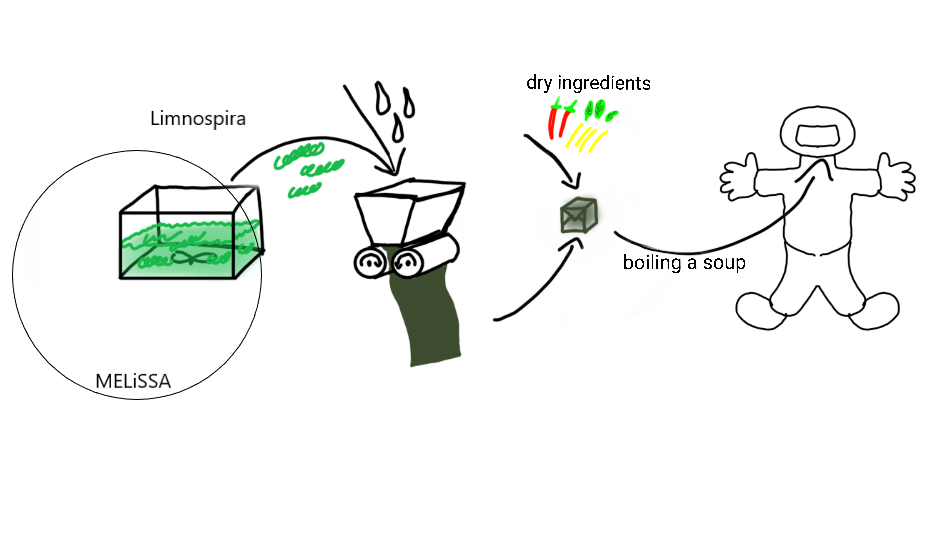Technologies for regenerative, biological life support systems (BLSS) are required for long-distance deep space exploration such as Mars transit missions. Development of these technologies is in the focus within the closed loop-related Micro-Ecological Life Support System Alternative (MELiSSA) project, which is developed by ESA and partners. The fundamental role is to support the crew with oxygen, water and fresh food, mainly by means of plants and algae. Furthermore, expanding human presence beyond Low Earth Orbit relies on the readiness of new capabilities and technologies, e.g. to manufacture materials for daily life products in space to minimize launch cost. Ideally, the feedstock for those products is derived from local resources, e.g. from waste streams of the BLSS, while the degree of closure of the BLSS is kept as high as possible. Among identified applications there is the need for packing materials, e.g. packaging of food or other matter. Among potential packaging materials there are thin films. When the raw materials are edible, the films might be manufactured in a way that the final product is edible as well. To name two potential applications: When produced from MELiSSA derived organic waste materials aboard the space station, (edible) thin films might contribute to enlarge the variety of served food and recipes for the crew and/or ease the handling and dosing of powders, e.g. detergent. We are looking forward to investigating the potential of edible Limnospira (Spirulina-) based thin film bioplastic for packaging purposes. Investigations might include re-/upcycling of spent Limnospira-based thermoplastic-like waste material from 3D printing. The 3D printing process is currently under development at Blue Horizon as a potential functional extension of the MELiSSA concept.

